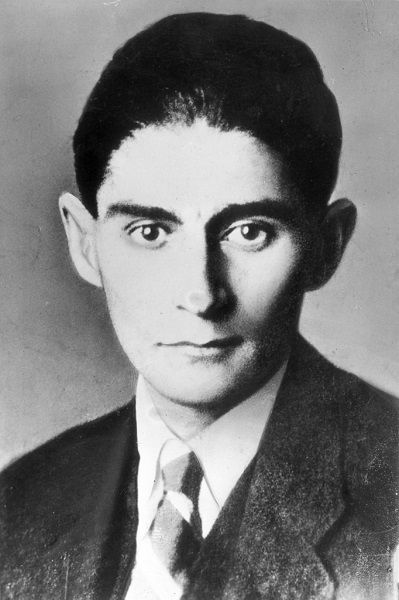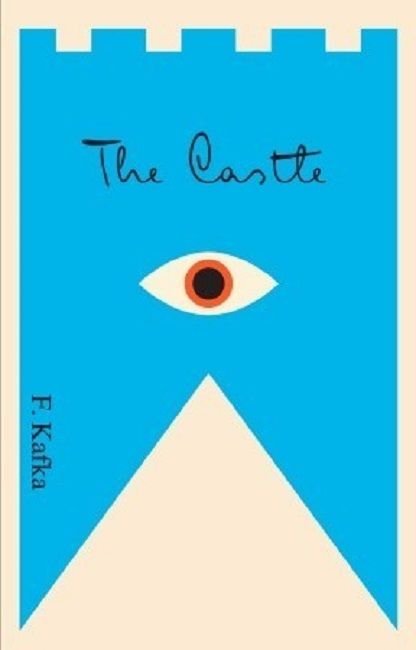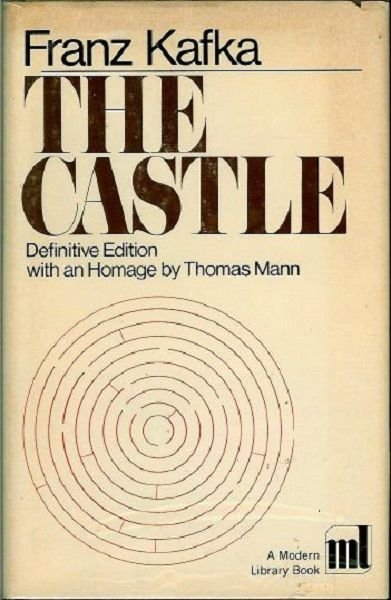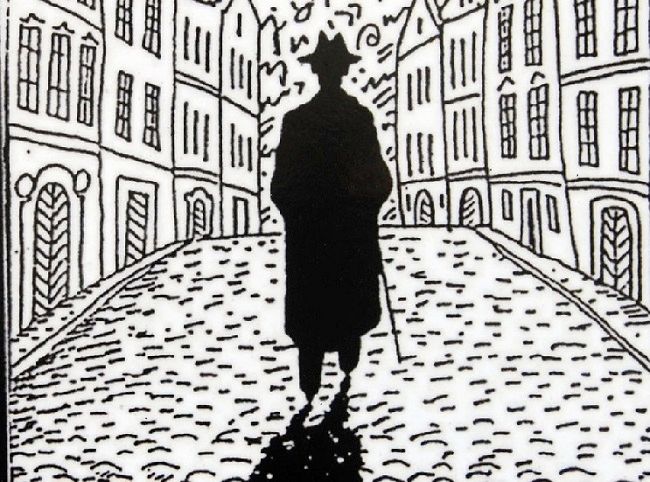
Nowadays Franz Kafka's personality is enveloped in silent but godlike admiration. It would touch the most sensitive people who are good at thinking about life and its contradictions, not only confronting them, but also overcoming them with the clear awareness that the road is one and it leads only forward. For this unwavering purpose, Kafka himself struggles. Great intellectual potential is required to understand Kafka. Knowing his sad personal life, many of the themes in the novels and his works are understandable, but not the way they are betrayed. Kafka is a modernist author, the result of a dramatic sequence of unconquered desires. He is a writer who has suffered all his life but who accepts the paradoxes of society and who, in the end, frankly and brilliantly laughs at them. And it is through the astonishing, unscrupulous view of an ordinary observer of the world, instead of a product entirely dependent on his move, which is, in fact, the product of us. This is his greatest strength. Growing over the trifle's poorness and mediocrity, Kafka reveals what unexplained possibilities exist for a person living in the ordinary environment, but who has the potential and, above all, the reason to move this static commonplace by taking the first steps towards eliminating it: Well, up there, we have to be content with what we are doing, but here, below, we could still do something ourselves. Man is over events, he is in complete control of his desires and actions. Despite the clear awareness of the pointlessness of everything, he does not give up his optimism of self-worth and self-realization: What else could lure me into this wasteland, if not the desire to stay here?

Of course, all the impulses with which the writer charges his heroes remain unrealistic, rather they do not have enough impact force to achieve the above-mentioned radical changes. As our society is a society of bureaucracy, bulwark, hammalogy, and flying leaves that never reach its destination, this environment of eternal repeatability, physical laziness and psychic confusion does not even allow the emergence of a dynamic and equally just world. Because the struggle of Kafka, or more precisely K., the protagonist, is precisely that - for personal justice achieved through the achievement of a life that is clear to everyone, but absolutely clear to no one, and of a life without the mediation of the institutions and the administration. For some warmer human relationships, in which the individual can safely be himself and make sense of his existence through full-blown contact with other people. There is no time for melancholy at Castle, because there are events happening around K. The reader is in constant wonder what is first - whether the arrival and actions of K., or the events themselves. It is not clear which one originates. Arriving in the village with a clear but out-of-the-goal goal, K. began his long journey to the castle. Although he has repeatedly repeated that he has traveled a long time and has left his family and home far back in search of work as a landowner, K. staying in the village and working in the castle are of vital importance. This time is filled with ambiguities and labyrinths, with situations that seem to be somewhat intriguing. In fact, throughout the novel, the situation is as it is - no more, no less true or false. This is a special sign of "The Castle", which is at the same time characteristic of Kafka's creativity. Who knows what awaits you here, full of all possibilities. But of course, there are ones that in a sense are too big to be used, there are things that fail, not for anything but for their own sake. The unexpected and almost metaphysical stupid state of affairs intertwines with the gloomy, suffocating atmosphere of doom and futility. Kafka's sophisticated style and the mocking, mocking tone he writes correspond in a very atypical way to the seriousness of the issues he's been affected. Only truly brave or disappointed, but in any case an extremely intelligent man could create and stick to such avant-garde writer's strategy. So, what could have been predicted, but not prevented, had come true.
Though K., apart from being lost in her obsessed personality alienation (all of whom are constantly referred to as a "foreigner"), she can also be characterized as a great optimist who goes through life and tries to make the most of it. His struggle to allow him to work and live in the village is inspiring, despite all the surrealism of the site, as well as the castle itself, which is known to be there, but no one has real access to it, though has visited one of his many offices. Thus, it remains unclear whether what is happening is a reality or not, whether people are real or not, as they are described with a number of peculiarities, most of which are just physically outlined elements with empty looks and lifeless persons. They are also fearsome and frightening, especially K.'s helpers, for whom the question of whether they are mentally damaged or murderers is almost metaphysical. Doubt is a constant feature in the book, except in the attitude of Frida to K., which is one of the big surprises. The afflicted themes are also scary - for the debauchery and corruption, for the hidden personal motives, the manipulation of society by the authorities, as well as their universality, for the submissive presence of misfortune and disappointment that never go. As far as bureaucracy is concerned, she is Kafka's main opponent. The author mercilessly laughs at her. It slashes the desire of limitations, a subordinate to feel like a little Clam. The words he uses to describe the action in the novel are also very powerful: questioning, deception, madness, insanity. Funny, but also disgusting, is that after each secretary there is another one, and there is another post behind each office. In this way, K. never manages to get to Klam himself, with whom he wants to discuss his future at the castle. Unfortunately, the situation is really hopeless for K: The orders went somewhere above it - both unfavorable and favorable - and certainly the core of the favorable was also unfavorable, in any case all of them passed over him and he was too low to change them or - which was even more impossible - to repeal them, and make his word heard. In the last part of the book, the action takes place very quickly. There is a series of events that radically overturn the reader's perception of the novel itself, as well as unexpected twists in the relationship between the characters. Kristina reveals a truth, a secret that sounds so absurd, and is actually a depressing life drama that is common in real life.

Kafka's sadness, imaginative world from the novel "The Castle" is a projection of the dreadful nightmares of his own everyday life. He implanted the impressions of his unhappy lifestyle in K and his story to finally create an amazing, though incomplete novel. Unfortunately for Kafka, the novels always remain unfinished. Even after his death, he even wanted all his manuscripts to be destroyed. He has the incredible talent through his writing to inspire readers to be mindful of all-human problems that may be small in the small, isolated world of K, but they are actually of great significance not only for himself but for us, the people of the real world. Kafka has a monstrous imagination and uncompromising sterile rigor to herself. "The Castle" is a philosophical cataclysm. In order for this novel to be understood, it must be broken down into fragments, but this seems only possible for the person who wrote it. Kafka's writing style is mysterious, subconscious, unconventional, uncompromisingly challenging, and his highly accentuated individualism is at the heart of his literary talent. He seems to have kept all his desire for life to put it in the literature he writes. Too bad it is that a creator of such high value has not believed in himself and has steadily isolated himself ever deeper into his incurable anxiety. And if the "Castle" is a brilliant work even in its incomplete form, we can hardly imagine what a masterpiece it would have been if it had been completed.

novel are also very powerful
Downvoting a post can decrease pending rewards and make it less visible. Common reasons:
Submit
Yes, "The Trial", "The Metamorphosis"... everything what Kafka write is powerful :)
Downvoting a post can decrease pending rewards and make it less visible. Common reasons:
Submit
Here is one interesting video, maybe you will like it :)
Downvoting a post can decrease pending rewards and make it less visible. Common reasons:
Submit
Kafka writing is amazing and good werking
Downvoting a post can decrease pending rewards and make it less visible. Common reasons:
Submit
@godflesh. Thanks for sharing. I like your post very much. "The Castle"is and philosoplical and psychological novel. Could be it is hard to read but its approach is current even today, or maybe even more today. In other wordas, you select a very interesting subject. Upvoted and follow. Have a nice and productive new week
Downvoting a post can decrease pending rewards and make it less visible. Common reasons:
Submit
Thank you :)
Downvoting a post can decrease pending rewards and make it less visible. Common reasons:
Submit
Franz Kafka is a very talented writer. He was able to see the world through the prism of their Outlook on life. As a result, he created great works that will study a generation of people.
Downvoting a post can decrease pending rewards and make it less visible. Common reasons:
Submit
Yes he is one of my favorite writers :)
Downvoting a post can decrease pending rewards and make it less visible. Common reasons:
Submit
img credz: pixabay.com
Nice, you got a 87.0% @minnowbooster upgoat, thanks to @godflesh
It consists of $18.77 vote and $3.34 curation
Want a boost? Minnowbooster's got your back!
Downvoting a post can decrease pending rewards and make it less visible. Common reasons:
Submit
thanks!
Downvoting a post can decrease pending rewards and make it less visible. Common reasons:
Submit
I want to say something. İt was a nice sharing but it could be better if the pieces were in pieces.. Writen this way eyes are tired in electronic media. Thank you for information
Downvoting a post can decrease pending rewards and make it less visible. Common reasons:
Submit
I see. Okey next time i will try to make it more better :) Cheers!
Downvoting a post can decrease pending rewards and make it less visible. Common reasons:
Submit